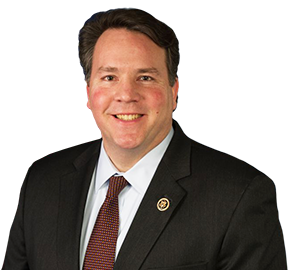CHARLESTON, W.Va. — When the U.S. Congress meets Wednesday to certify the presidential election, Rep. Carol Miller, R-W.Va., will challenge the results from some states.
Miller said in the op-ed to be released Wednesday her doubts stem from changes to voting procedures in other parts of the country.
“Election fraud, whether intentional or incidental, individual or institutional, undermines the very foundation of democracy that we all hold sacred,” she said. “Even the appearance or possibility of fraud is entirely unacceptable.”
Miller joins several congressional Republicans in voicing opposition to certification; multiple House of Representatives members are expected to challenge counting the votes, and Senate Republicans are split on the action despite Senate Majority Leader Mitch McConnell, R-Ky., warning against protesting the count.
President Donald Trump has not conceded to President-elect Joe Biden; since Biden was declared president-elect in November, Trump has pushed claims of voter fraud without citing credible evidence.
Miller said challenging the election results is not an unusual congressional act, noting Democrats objected to the election results in 2001, 2005 and 2017. House Democrats in 2001 were unable to find Senate support to join their protest, and Congress overwhelming defeated a challenge to the Ohio election results four years later. Democrats were also unsuccessful in finding a supporting senator in 2017.
Miller also referenced findings from the 2005 Commission on Federal Election Reform; former President Jimmy Carter and former Secretary of State James Baker led the private body formed because of uncertainties about the 2000 and 2004 presidential elections. The commission detailed ways to improve voting as well as noted concerns with voting by mail, saying it creates challenges and increases opportunities for voter fraud if states do not have security measures in place.
“We can all agree that systematic voter fraud is a bipartisan concern very real in America today,” Miller said.
Carter and the Carter Center last May urged state and federal governments to increase access to absentee ballots, saying many states have improved the voting-by-mail process.
Miller added: “It is with this in mind that we must debate the evidence of fraud and the discrepancies in the presidential election of 2020. Secretaries of State, Election Boards, Judges, and other state and local officials should not be, in place of State Legislative bodies, making last minute changes on how their states perform the duty of providing, counting, and certifying ballots. Article II of the Constitution gives Congress the responsibility to provide the necessary oversight to ensure all ballots cast on Election Day are counted fully, fairly, accurately, and not interpreted through the lens of partisan politics.”
While Miller did not say which state results she would oppose, she did mention Pennsylvania in her op-ed; she criticized the commonwealth’s Supreme Court for permitting an extension for accepting mail-in ballots in addition to allowing certain procedures for counting votes.
“Ballots were not even required to be signed by the person supposedly casting that vote, poll watchers were denied access to observe counting, and ballots cast after election day or without postmarks could still be included,” Miller said.
“Election results are tainted when unsigned or non-postmarked ballots are conspicuously ‘found,’ creating a system that voters do not have faith in. Regardless of the outcome or impact of those ballots, that type of discrepancy cannot be allowed to happen.”
Pennsylvania’s Supreme Court in October unanimously ruled counties cannot reject a vote because a signature on a ballot does not match the signature on a voter’s registration form. The court in November ruled 5-2 that observers had enough access to ballot counting.
While states changed election procedures because of the coronavirus pandemic and concerns with the U.S. Postal Service, Miller said states had “ample time” to establish related rules.
“Election officials may have had good intentions with the execution of the 2020 election, but intentions are not a substitute for secure and legitimate elections,” she continued
Miller concluded her op-ed by stating the outcome will not change, but Wednesday’s session is Congress’ chance “to ensure our country has free, fair, and accurate elections that generations to come can be confident in.”
“The right to vote is the spirit and promise that America was founded upon, the freedom that so many have fought for, and why I cast my vote in defense of that right today,” she said.
Sens. Joe Manchin, D-W.Va., and Shelley Moore Capito, R-W.Va., oppose efforts to object to the election results. Rep. Alex Mooney, R-W.Va., who has also raised concerns about the presidential election, will “listen to the debate and decide at that time,” according to a spokesperson on Sunday.
Mooney and Miller signed an amicus brief in December supporting a Texas-led effort challenging ballot counts in Georgia, Pennsylvania, Wisconsin and Michigan. The U.S. Supreme Court dismissed the effort.
Rep. David McKinley, R-W.Va., has not spoken publicly about Wednesday. He shared support in November for an organized transition between Trump and Biden.
Capito, McKinley, Mooney and Miller were sworn in on Sunday as the 117th Congress began.
Republicans’ attempts to challenge election results will only delay the certification of Biden’s win. Trump on Tuesday tweeted Vice President Mike Pence has the authority to reject electoral votes. Pence’s role, as stated in the U.S. Constitution, will be limited to presiding over the joint session and announcing the results.

